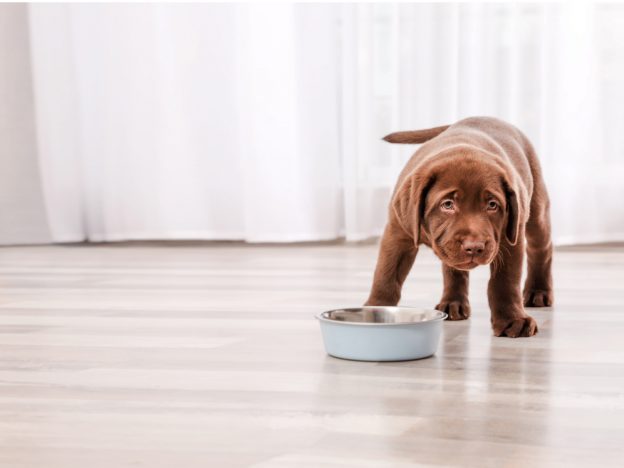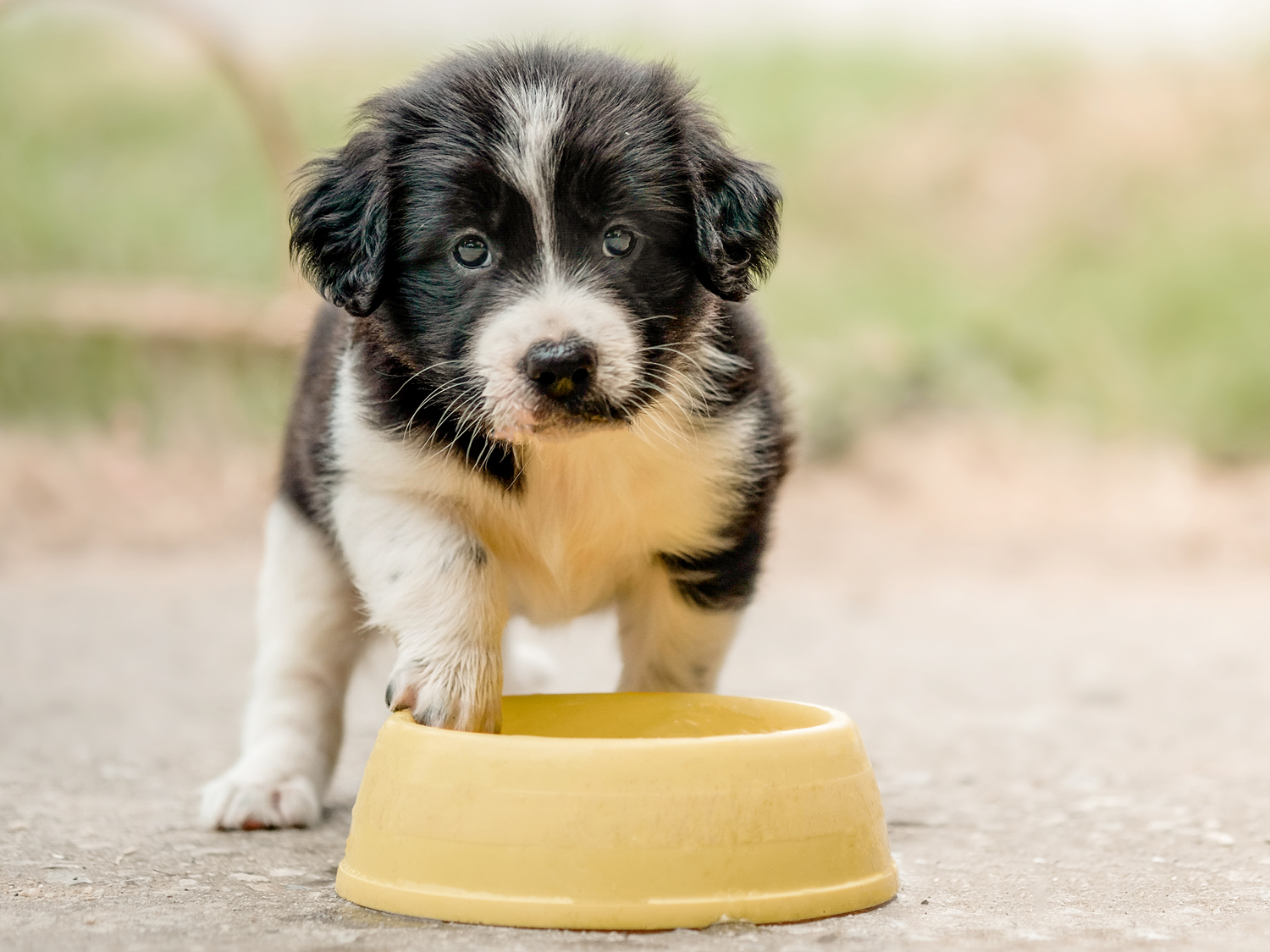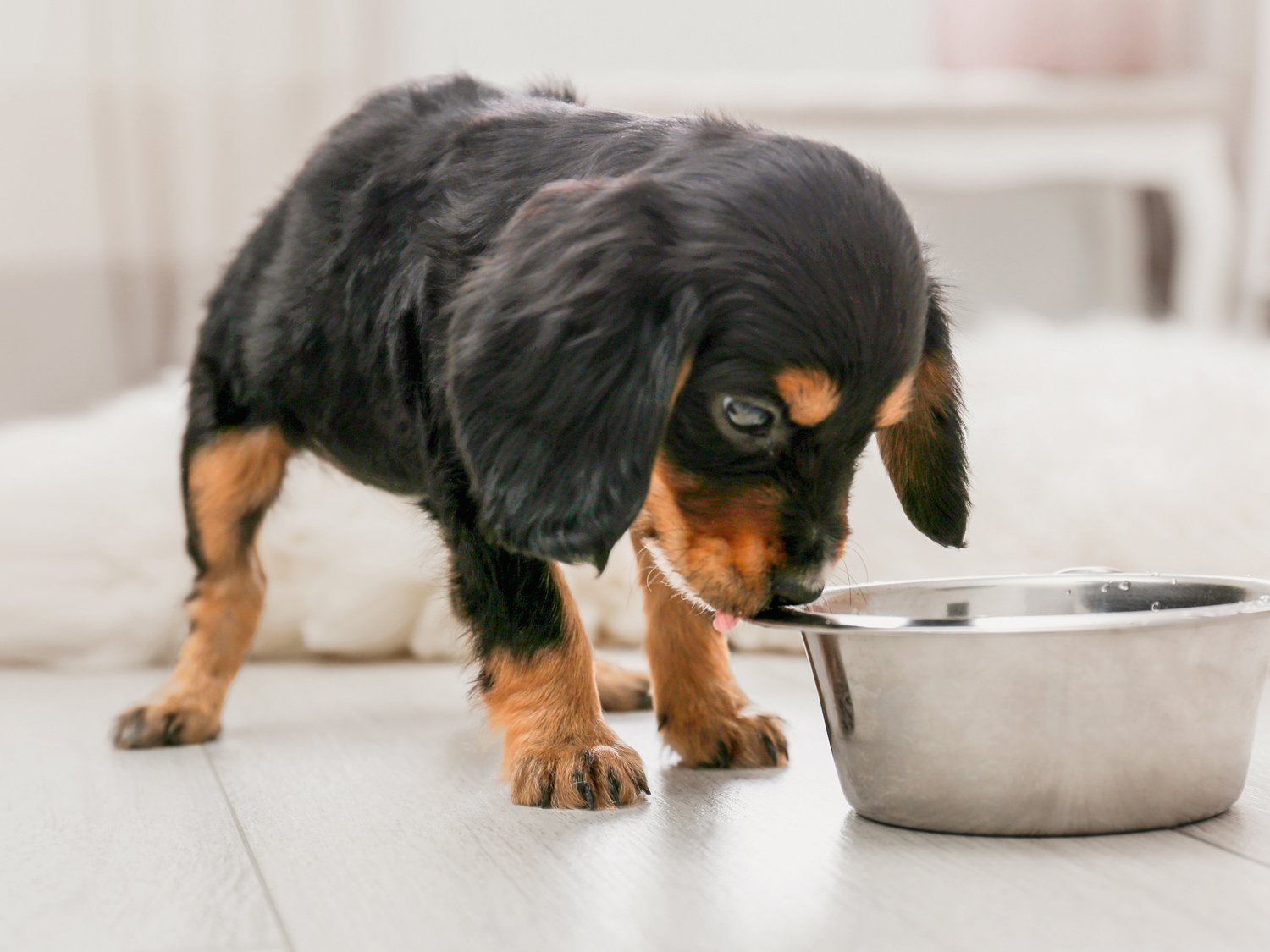
A puppy’s diet is very different from an adult dog. Feeding your puppy the right diet gives them the nutrients needed to become healthy adults. The DOGSLife team looks at how much, and what, your puppy should be eating to get the best start
Bringing a new puppy home can be one of the most exciting times for dog owners. However sometimes it can be hard for new pet owners to navigate through different advice and information on how to care for their new pet, particularly when it comes to feeding. Puppies need, on average, 50 per cent more energy than adults of the same breed to help them grow. This makes their needs very different to those of adults.
Not only do they need more energy, puppies also need:
- More protein: to provide building blocks for growth
- High levels of Omega 3: to help with brain development
- Prebiotics: to help guard against gastrointestinal upsets and boost their immunity
How do I choose the right puppy food for my dog?

With many milestones and development required, it’s safe to say that adult dog foods aren’t suitable for puppies. For the same reason, avoid feeding your puppy a home-prepared diet. This is because it may be missing these key essential nutrients required for healthy development. The safest option is usually high quality, commercially-prepared food.
There is a big variation, too, in the quality of commercially-prepared food on the market. That’s why it is always best to check with an expert, like your vet, for their advice.
A few key things to remember when preparing for your first puppy feeding experience:
- Nutrient vs Ingredient: Ingredients are the raw materials making up the dogfood, such as rice or poultry. These offer various essential nutrients that the body absorbs. Fibre, protein and vitamins are all examples, and these can be sourced from multiple ingredients. This is why it’s important to look at not just the ingredient list, but also the content analysis.
- Put Your Puppy First: Although dogs are omnivorous (meaning they require nutrients from both meat and vegetables), their nutritional requirements vary greatly from humans. Try to avoid buying into diets that are ‘on trend’ and appealing to humans.
- Nutritional guidelines: for more quick-reference nutritional guidelines, the World Small Animal Veterinary Association (WSAVA) offers an excellent guide here.
- Environmental care: manufacturer Royal Canin has a sustainability policy that means their wet product packaging is 100% suitable for RedCycle. Ingredients are ethically-sourced & traceable to safeguard both human and animal populations. Steps like these help look after the planet while ensuring your puppy gets the highest-quality food.
Do different puppy breeds have different food needs?

Yes! Just like there are vast differences between pure breeds, their nutritional needs also vary. This includes weight tendencies, breed predispositions and even flavour preferences!
One key difference is that larger breeds grow slower than smaller breeds and can require very specific diets to ensure they grow at their optimal rate. While giant breed puppies have two different stages of growth and need two different diets at each stage. Small dogs on the other hand, have smaller jaws and can be predisposed to dental issues, so size and shape of their food is key.
Ultimately the current size and eventual adult size of your puppy plays a very important role when choosing their first food option!
How do I know if I’m feeding my puppy too much?
With different nutritional needs that vary by breed and size, sometimes it can be hard to know how much to feed your puppy. Check out Royal Canin’s puppy feeding guide to know if you might be feeding them too much, which includes a suggested feeding schedule by puppy size. When in doubt ask your vet for help checking the expected adult weight of your puppy according to their breeding. They can then help you choose the right food for them and make sure you’re feeding it to them in the right quantities. Your veterinarian may also be able to score your pet’s body condition. This can give you an idea of whether your pup is underweight, overweight or sitting at their ideal body condition for their age.
For more information, Royal Canin have further expert advice on nutrition available on their website
This article was co-created with Dr Chantelle McGowan, BVSc – Royal Canin
You need to look after your pooch's health - check out our all-new DOGSLife Directory



